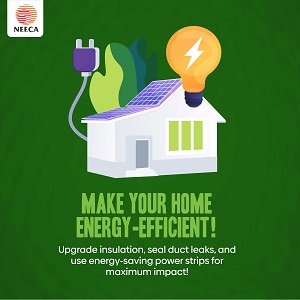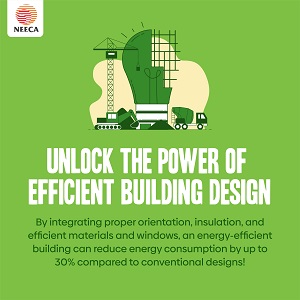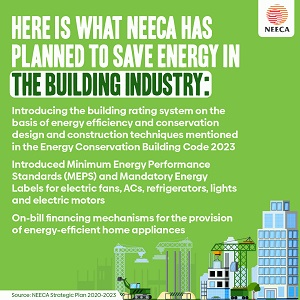Pakistan is undergoing a significant shift towards urbanization, with millions of people expected to live in urban centers by 2023. This rapid urban growth means a surge in construction activities, offering a unique opportunity to embrace energy-efficient appliances and effective Energy Efficient Building Codes. The traditional approach of horizontal urbanization, spreading across vast areas of land, also raises concerns about the efficient use of resources, particularly agricultural land. By prioritizing energy efficiency, we can minimize energy consumption, reduce greenhouse gas emissions, and create a healthier living for all.
The National Energy Efficiency and Conservation Authority (NEECA) is committed to transforming the building industry by promoting energy efficiency practices. Let's explore how NEECA is leading the way in creating comfortable, cost-effective, and eco-friendly homes and why it matters for you.
NEECA's Solutions: Energy-Efficient Homes for All
NEECA recognizes the importance of energy efficiency in the building sector and has introduced a range of initiatives to promote energy-smart practices. One key initiative is the implementation of the Energy Conservation Building Codes (ECBC-2023) and its integration into the building bylaws of provincial development authorities, ensuring energy-efficient practices in new construction as well as in the old buildings through retrofitting techniques mentioned in ECBC-2023. These standards cover various aspects, including building envelopes, heating, ventilation, air conditioning (HVAC) equipment, and lighting. By adhering to these codes, we can ensure that new constructions are energy efficient from the ground up.
To ensure a sustainable and efficient housing solution, it is imperative that we redirect our attention from horizontal urbanization to embracing vertical urbanization. This approach not only helps us preserve agricultural land but also improves energy efficiency and conservation potential in the building sector. By optimizing land usage, preserving agricultural land, and incorporating smarter and energy-efficient housing practices, we can build resilient, livable cities that meet the needs of present and future generations.
NEECA is also working on retrofitting existing buildings with energy-efficient technologies and the detailed design of the retrofitting techniques have been included in the Energy Conservation Building Code 2023. By adopting energy conservation practices and upgrading appliances, we can significantly reduce energy consumption in residential and commercial buildings. This is crucial as buildings currently account for a large portion of energy consumption in Pakistan.
What is stopping you from adopting energy conservation and efficiency practices in your daily life? #PMsEnergyReforms #NEECA #EfficientEnergy
— NEECA (@NEECA_Pakistan) July 25, 2023
Q&A with Khalil Raza and Zeeshan Ullah from NEECA
Your Role in Building a Better Future:
You have the power to make a difference in building a better future. Start by adopting energy-efficient practices in your home. Insulate your homes and buildings, maximize the use of natural ventilation and lighting, upgrade to energy-efficient appliances, implement smart energy management systems, and consider retrofitting your home with energy-saving technologies. You can also take the first step by supporting NEECA's initiatives and advocate for energy efficiency in your community.
Together, let's build an energy-smart future where energy-efficient homes are the norm. By taking small steps towards energy efficiency, we can create an energy smart and more prosperous Pakistan for generations to come.
"Pakistan succeeded in creating a national roadmap for Energy Conservation, which directly impacted the Country’s Foreign exchange."
Mr. Agha Hassan Baloch
NEECA IS PROMOTING ENERGY EFFICIENCY IN PAKISTAN'S BUILDING SECTOR
NEECA plays a pivotal role in advocating energy efficiency and conservation in Pakistan's rapidly expanding building industry. The retrofitting of existing buildings with energy efficient technologies and adoption of energy conservation practices offer significant energy savings given that residential buildings alone account for 22.2 % of final energy consumption and 24.87 million Tons of GHG emissions.
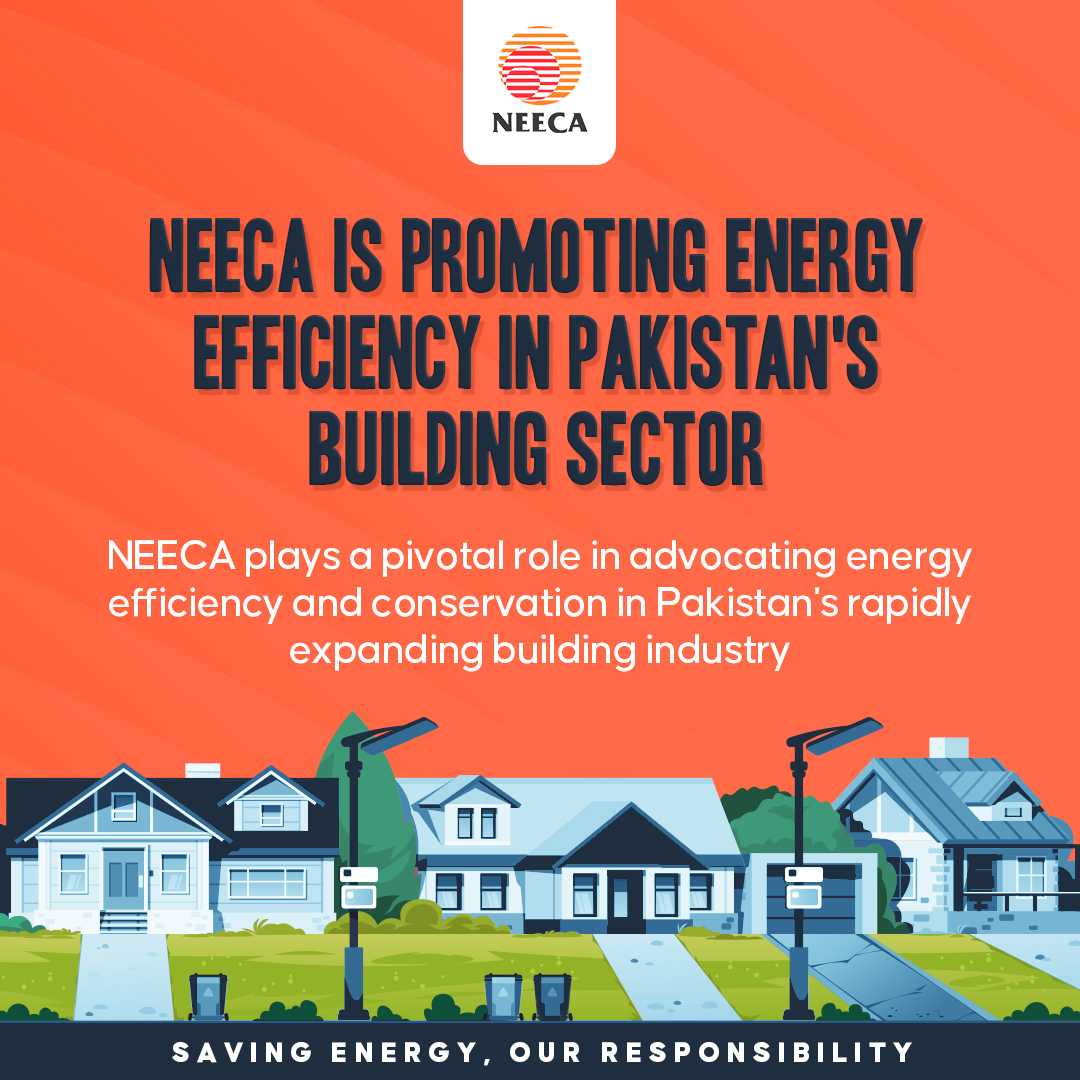
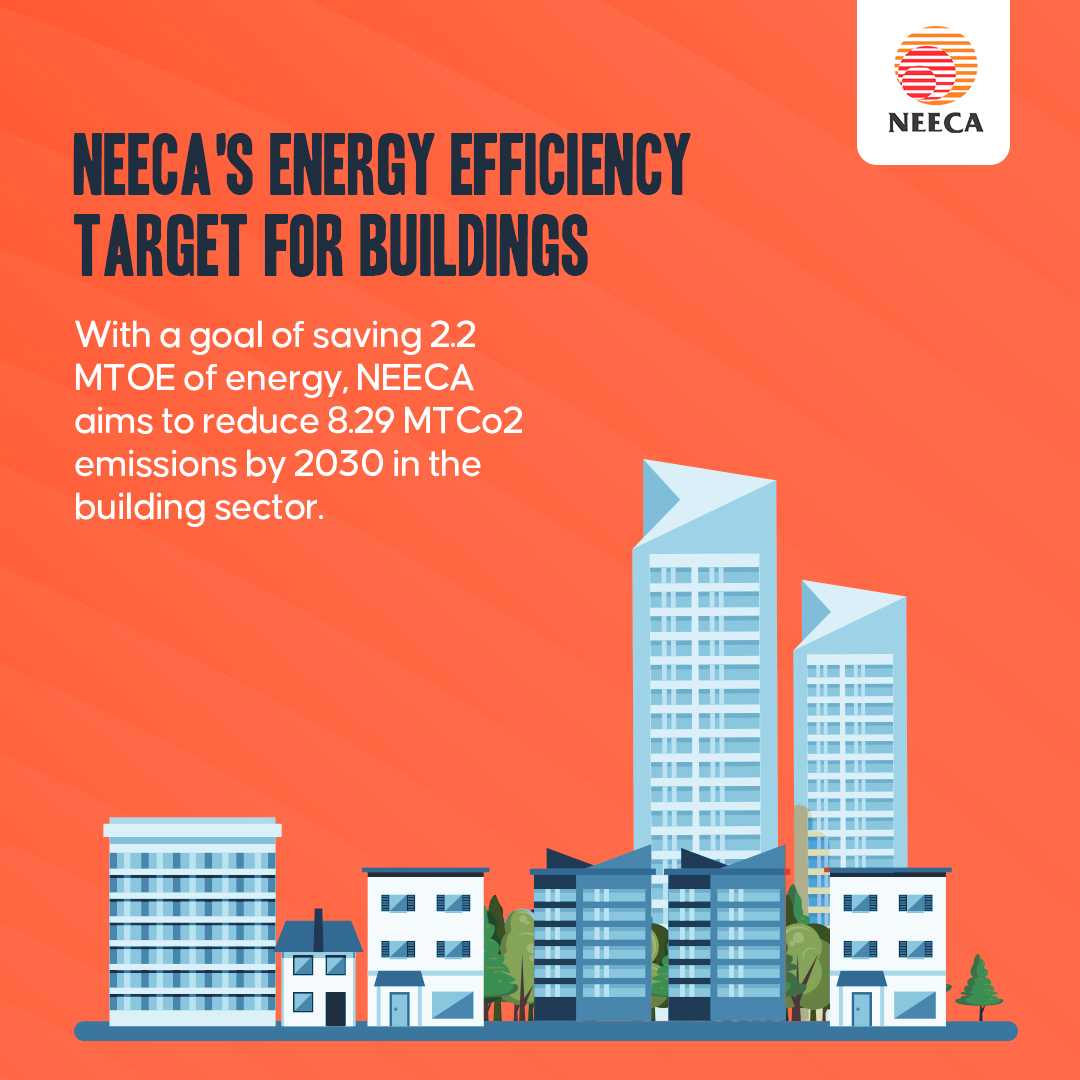
NEECA'S ENERGY EFFICIENCY TARGET FOR BUILDINGS
With a goal of saving 2.2 MTOE of energy, NEECA aims to reduce 8.29 MTC02 emissions by 2030 in the building sector. New buildings must adhere to Energy Conservation Building Codes by 2024, while older buildings will undergo mandatory energy audits with five-year energy-saving plans by 2025. Minimum energy performance standards for appliances will be enforced by July 2023, and public procurement guidelines will promote energy-labeled products.
NEECA'S INITIATIVE: IMPLEMENTATION OF ENERGY CONSERVATION BUILDING CODES (ECBC-2023)
The Pakistani government has launched a comprehensive energy efficiency plan, encompassing several key initiatives. Additionally, energy managers will oversee energy management in designated buildings, and both pre- and post-solarization audits will be mandated for public buildings, further encouraging renewable energy adoption with provincial collaboration.
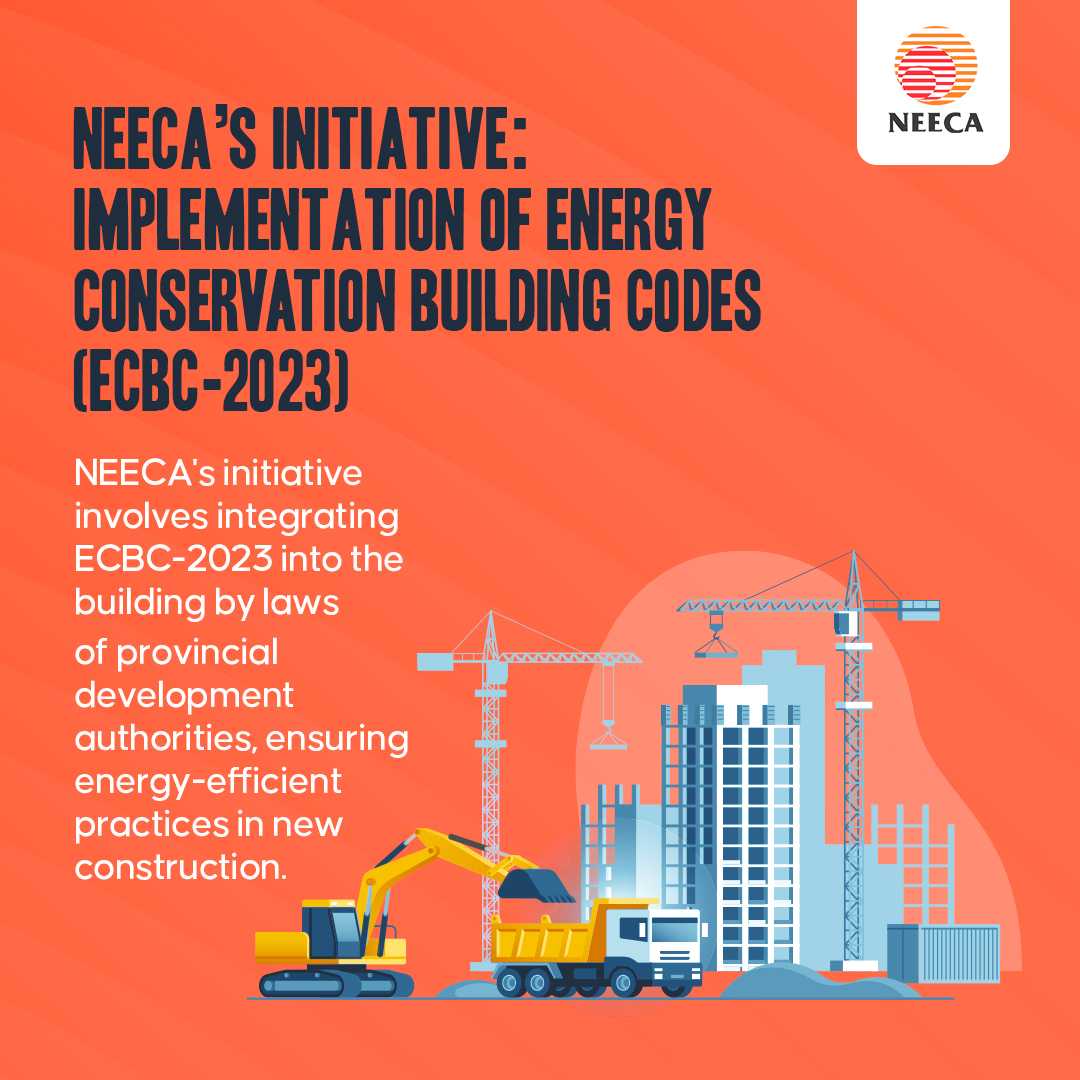
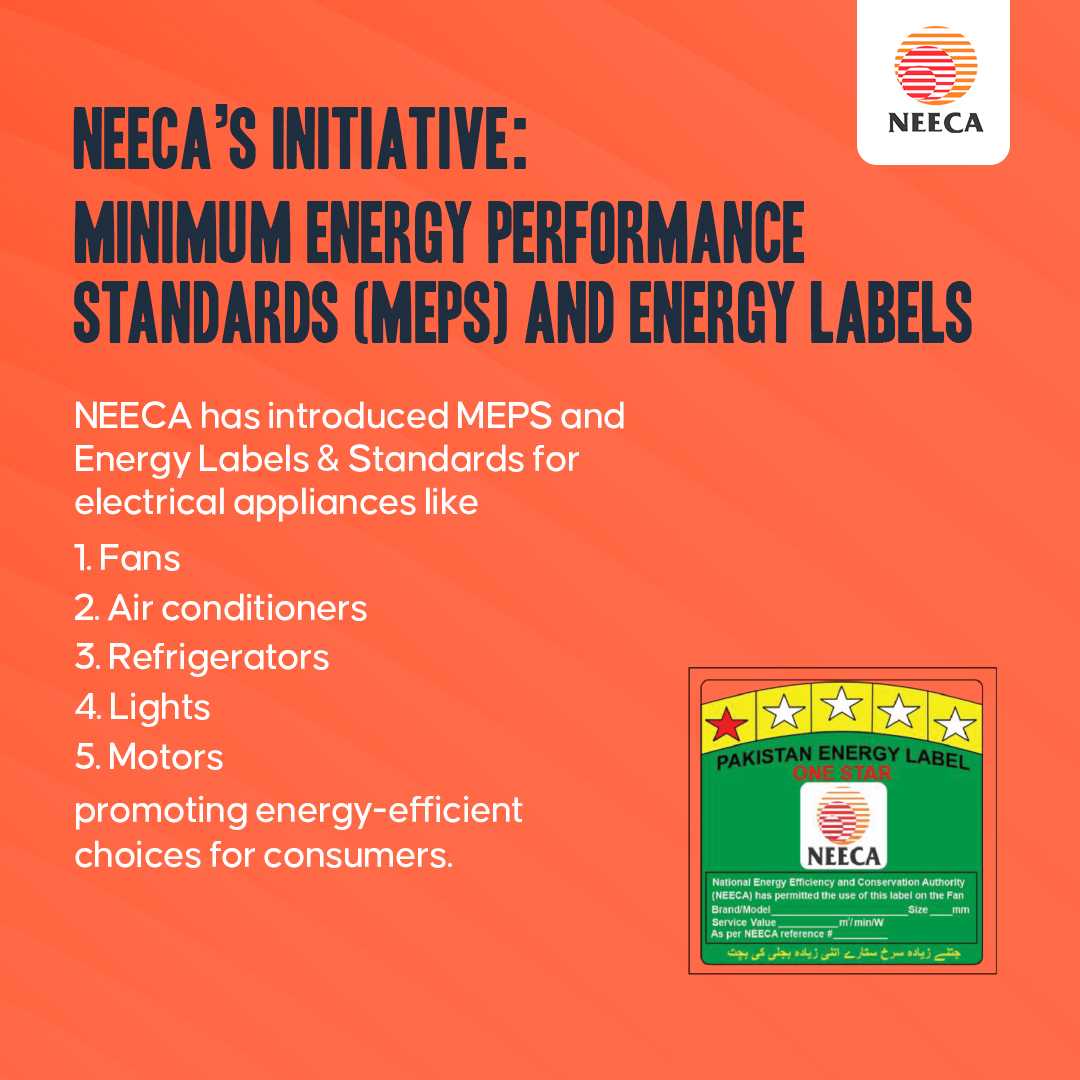
NEECA'S INITIATIVE:MINIMUM ENERGY PERFORMANCE STANDARDS (MEPS) AND ENERGY LABELS
Adoption of energy performance standards is the most challenging task for successful implementation of EE &C policies in Pakistan. This will require the development and enforcement of rules and regulations to implement the Minimum Energy Performance Standards (MEPS). At present, NEECA has developed MEPS for electric appliances. The voluntary Energy Label Regime for electric fans is being implemented. However, the enforcement and surveillance for mandatory regime will largely rely on availability of accredited testing infrastructure.
NEECA'S INITIATIVE:STAFFING ENERGY MANAGERS AND ENCOURAGING BUILDING ENERGY AUDITS
NEECA encourages staffing of energy managers for designated consumers of the building sector, facilitating the implementation of verifiable energy management systems and conducting mandatory energy audits for efficient energy utilization. This action will directly support the implementation of Action IS5 and support the achievement of its goals. The adoption of EnMS has been limited across the industry due to associated financial costs with certification and required investment with adoption of energy efficient processes and practices. The Industry also faces information asymmetry regarding energy management at their establishments due to lack of HR capacity and understanding.
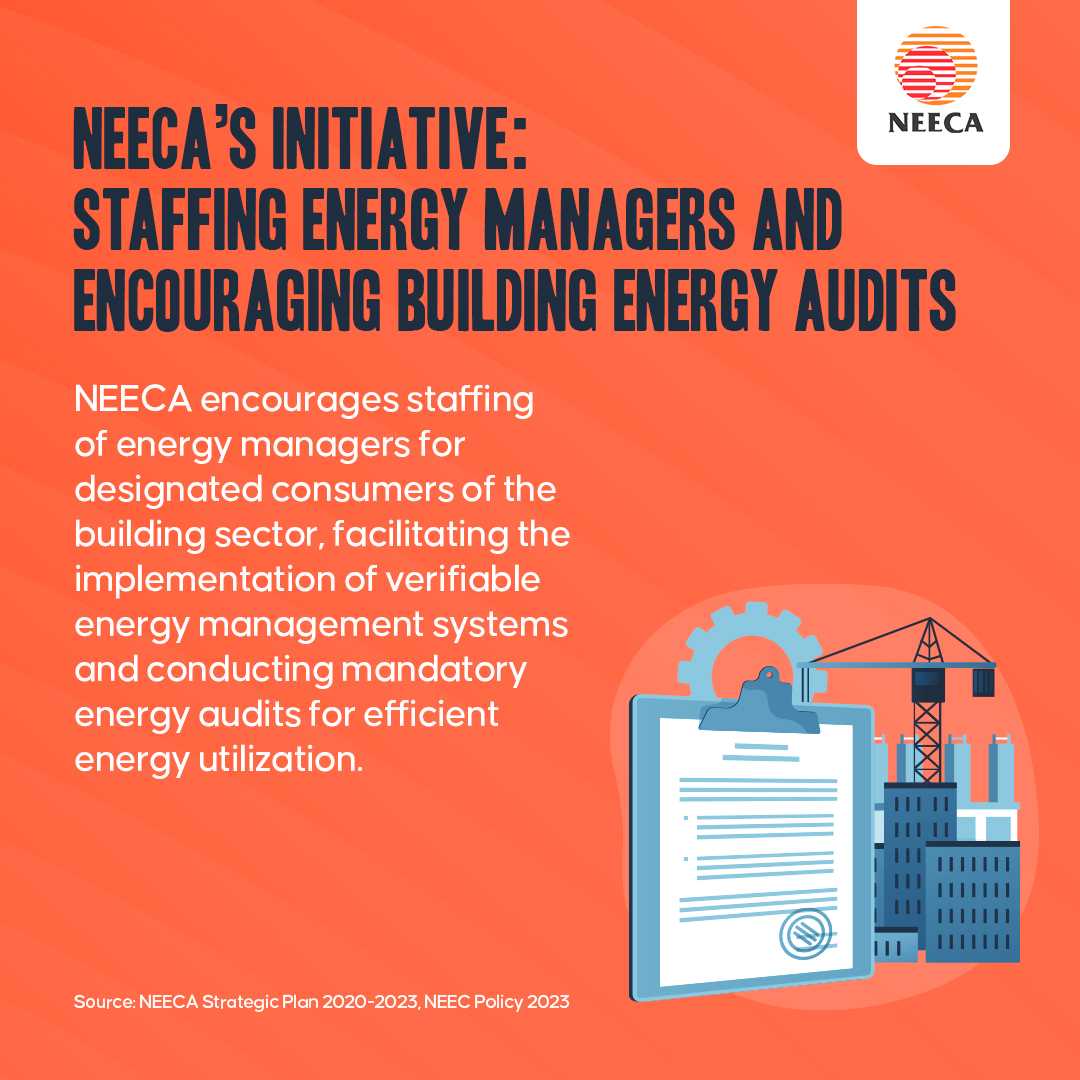
The building Sector of Pakistan has massive potential for Energy savings.
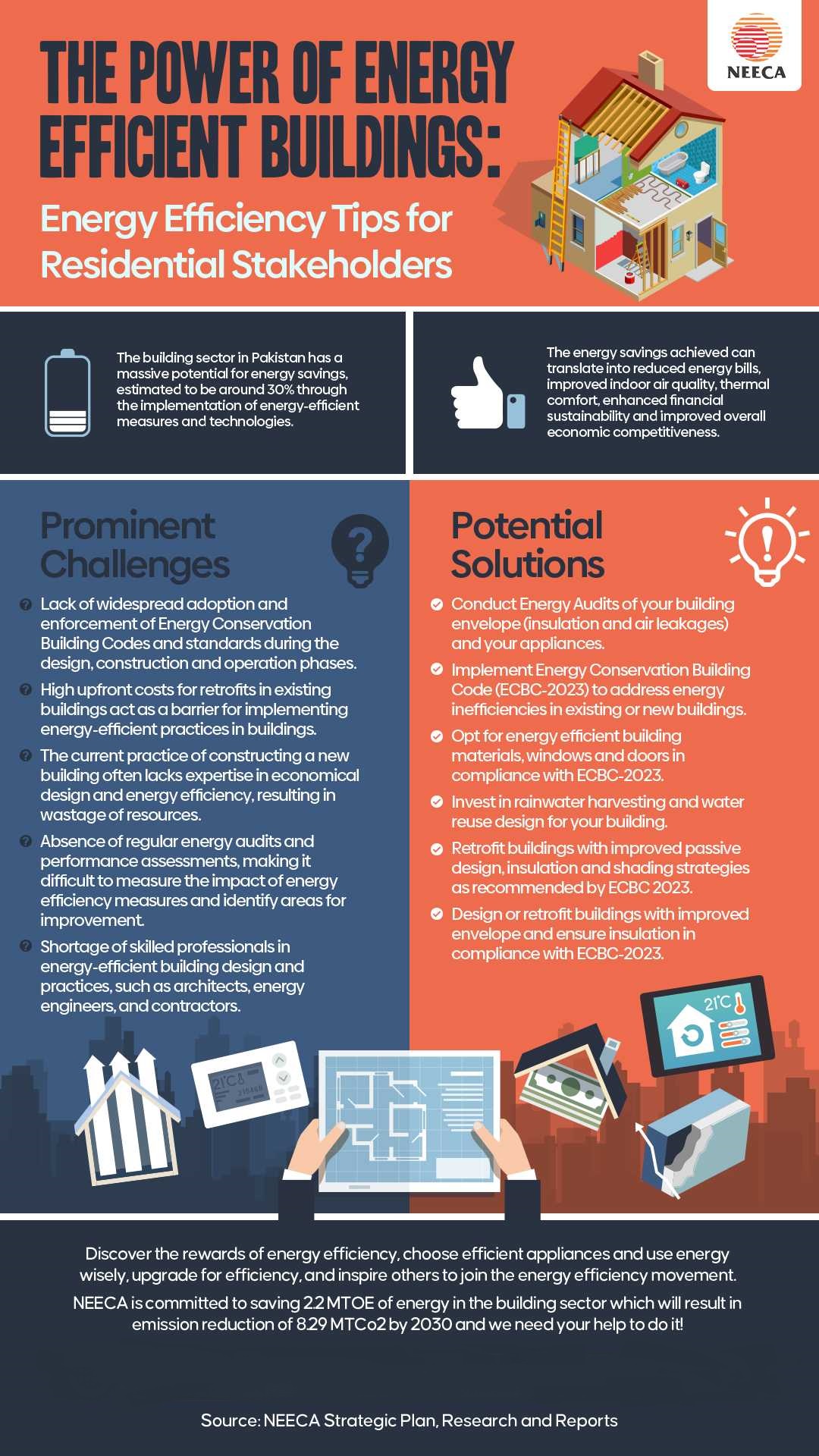
Energy Savings estimated around 30% through implementation of Energy-Efficient techniques.
Energy Savings achieved can translate into reduced energy bills.



